Your body: it is what it is
If you were to ask a voice instructor about the wisdom of A) forcing people to sing outside of their natural ranges or B) physically manipulating their vocal cords to make them sing differently, he would rightfully be horrified.
People’s vocal cords come in a wide variety of sizes, and are intended for different ranges and colors. Men’s are generally longer than women’s, which is why they tend to have deeper voices. Children’s voices are more homogeneous and delicate than those of adults. This is why children’s voices tend to sound the same and lack vibrato.
People are also discouraged from training for opera until their 20s. While some instructors will start earlier, all of the instructors I spoke with said that opera was generally not for those under 21. To sing opera, you need to know what your voice type is, and many people’s voices have not matured enough to be able to make that determination. Plus, vocal cords are fragile, and opera places heavy demands on the young voice.
Let me share my story.
First, some basic knowledge about vocal classification or vocal fachs. There are three basic types of female voices: soprano, mezzo soprano, and alto. To put it simply, sopranos sing high, mezzos sing in the middle, and altos sing low.
Range is just one factor to consider when classifying someone’s voice. Two others are weight and tone color. Weight refers to how mature a voice sounds. Voices classified as lyrical, for example, sound more youthful than voices classified as dramatic. Likewise, dramatic and lyrical sopranos differ in tone color. Dramatic sopranos have a darker, deeper sound than lyrical sopranos, but they are still sopranos. For clarification about tone weight and color, go here.
I sing contralto, which is a low-pitched alto with a dark, heavy tone color. Except I did not always know this. When I was a child, I had the typical soprano voice of a child. I was a strong singer too. All of the sudden, I turned 11 and I had the same voice as I did when I was younger, except now I had an extensive and strong chest register.
Out of the blue, I could sing bass notes. When I went to high school, I had lost much of my upper register, but still had a powerful chest register. I was like a boy going through puberty without the voice cracks. I had other vocal problems, such as a limited ability to project, a lack of resonance, etc. Basically, I had the earmarks (no pun intended) of a voice that was both relatively untrained and in the throes of an identity crisis.
I listened to the other girls and was jealous. These were loud singers with strong vibratos, who got solos, and who were born to sing. I wanted to know what was wrong with me and I tried so hard to be like them, adding false color, singing louder than I was capable of, and doing other things to my voice that just should not be done. Needless to say, none of that helped. Those other girls were still sopranos and altos, and I was a not-quite tenor.
The pressure to conform went beyond the walls of the music room at my school. We, as a culture, idolize women with impossibly high voices, and we favor women with lighter, more youthful voices over heavier, darker ones. If you are not a soprano or mezzo soprano, and you do not have the right weight or tone color, your career will be limited. Since lower, heavier voices take longer to mature, it takes longer for them to train and to enter the music business with an optimal sound. In the meantime, they spend years wondering what is wrong with them or training to be something that they are not. For example, a contralto such as myself might be pressured to expand their upper range and lighten their sound to sound like a mezzo.
Now, I sing contralto. I do not have an opera voice at this time, but it is powerful nonetheless. I have a dark, heavy tone, color and vibrato. I can sing 3 1/2 octaves. My range extends from G at the bottom of the bass staff to E two octaves above middle C. I sing higher than some sopranos and lower than some baritones, and can hit most of those notes comfortably. My tessitura (range in which you are most comfortable singing) is somewhere between alto and tenor.
What was the cure for the mysterious affliction from my teenage years?
*Drum roll*
It was to listen and wait, let my voice be what it was, work with it, and wait to see what it would become.
I am eternally grateful that I had instructors who understood my voice and who were willing to work with what nature gave me. Otherwise, I would not have the abilities I have today, would not get far in my singing career, and would be forever uncomfortable in my own vocal skin.
These days, I feel that it is increasingly popular to push children ever further in all areas of life, and to be the best in everything. They are pushed even if it means long-term harm trying to be something they are not ready, or meant, to be. Some people’s voices mature faster than others, but I do not think that children should be singing opera and trying to sound like adults. Children’s vocal cords are still developing and are fragile. Pushing them to sing with an adult sound and intensity can damage their vocal cords. It can limit their range, ruin their sound and their stamina. Worst of all, it can damage their love of singing and their willingness to train further if they are continually encouraged to meet impossible expectations. Basically, pushing them can actually reduce their potential in adulthood, the exact opposite of what you intend to do.
Children can still take lessons and perform, but at an age-appropriate level. Training and experience should intensify as a teenager and when you reach your 20s, then you can start thinking about something like opera.
People hold the mistaken belief that if people don’t do everything while young, it will never happen, or that they will be forever behind those that get started right away. That simply isn’t true. There are certain windows of opportunity during development during which it is easier to learn certain things. For example, it is easier to be raised bilingual than to learn a second language as an adult. Still, there is absolutely nothing stopping you from becoming a bilingual adult. Then there are certain things that you cannot do until you are older, full stop. Singing like an adult is one of them. Your vocal cords need to take the time to get longer and thicker and change shape.
I think that child athletes face the same predicament as the child opera singer. You don’t even need to be an athlete to face the pressure because today’s gym classes bring it to you in the form of punitive exercise regimes and fitness testing. Children are being asked to meet adult expectations of fitness and athleticism and that just isn’t right. It’s not a realistic expectation and it can harm children physically. Like their vocal cords, their muscles and bones are still fragile and growing. Over-exercising them can lead to pain, injury, and permanent disability, especially in the joints. Again, people think that if we train them young, they will get used to it. They’re wrong.
If you allow children to naturally be what they are meant to be, the results are far superior. Of course children should explore physical activity (and singing) and have opportunities to showcase their talent. At the same time, childhood is a time to work your way up to adult activity and find out what you like. It is not the time to over-schedule or to hire a personal trainer (or vocal instructor). A coach or a choral director is fine at this stage. Over time, a child’s voice will expand its range and develop a more mature sound. Her musicianship will improve. If you put a child in athletics, your child’s stamina, flexibility, and range of abilities will increase also. A child’s body — bones, muscles, and joints — will actually have the opportunity to develop its adult size and strength, and it could be better than you ever imagined, much like my adult voice.
Even singers (and athletes) that are mature and well-trained will differ in their abilities. Despite what people tend to believe about whistle register sopranos being the most important voices in the world, they are just one kind of voice with pros and cons like any other voice. Not sounding like one of these sopranos does not mean you are not an accomplished singer. Such a voice is useful in soprano solos, but it is ill-equipped for singing mezzo or alto parts in Gregorian chants, which require blend and smooth tones. Such a voice is good for frills and trills, but if you need to sing over an orchestra or sustain long notes, dramatic mezzos and altos are better equipped.
Likewise, runners and organized sports players are not the only physically fit or accomplished people out there. Others will have the endurance of a swimmer, the upper body strength for weight-lifting, or the agility of a dancer. Their bodies are all different. They are made differently and should be treated differently.
I went through a similar journey with my physical activity. Even though I don’t do organized sports, I am strong and have a lot of stamina. I am naturally very muscular, have a high lung capacity, and am just very energetic. I am particularly fond of swimming and rollerblading, as well as just dancing all… night… long. I shudder to think how limited I would be if my loved ones decided that they needed to whip me into shape because, by six years old, I wasn’t athletic enough. I shudder even more to think what this would have entailed besides over-exercise and a restricted diet. I would not have the muscles, bones, or joints I do with a restricted diet and look at that! I got a bad-ass skeleton while fat, flabby, and not dieting!
In our hyper-competitive culture, sometimes it really is better just… wait!
Life is not a race. Enjoy the scenery and choose your own destination.
Now, if you want to hear a bad-ass coloratura soprano from Peru, listen here. If you want to be blown away by yet another soprano, but with a more dramatic flavor, go here.
ETA: Since I wrote this post, I discovered my whistle register and my total vocable range includes four octaves. My singable compass includes 3 octaves. Damn, I’m good. ![]()








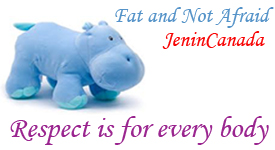

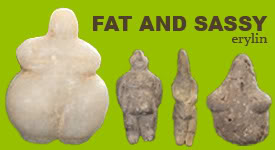






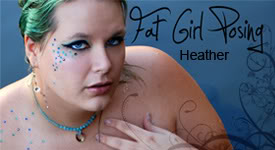



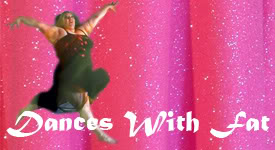
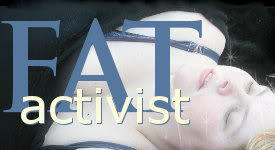
Very nice article. I wish it addressed the title a little more directly, but I’m recommending it to friends. Thanks!
I love this metaphor so much! It’s so appropriate for Size and Body Acceptance… you can’t change what you are. You can temporarily alter it, but you will do more damage in the long-term than if you simply embrace the genetic endowment bestowed upon you. Thanks for sharing this excellent perspective, Joanna!
Peace,
Shannon
This is an awesome analogy - some bodies are meant to be distance runners, some are meant to be sprinters, some aren’t meant to be runners at all, they’re meant to be lifters or movers or something else. And trying to force one type of body to become another type doesn’t work for long and can do irreparable damage - just like with voices.